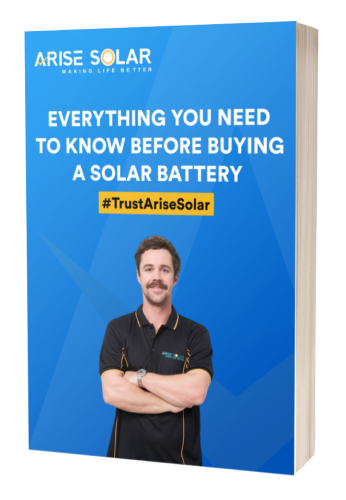In Australia, switching to solar is one of the widely accepted concepts for saving money and reducing carbon footprints. Every day, an increasing number of Australians are switching from fossil fuel sources to solar energy. Most of us are aware that solar panels have grown in popularity across the nation in recent years, and recently the news floated that Australian properties across the nation installed a record breaking 3GW of solar in 2021. The efficiency of solar panels, being an important component of a solar power system, has a significant impact on the system’s performance. However, how efficient are the solar panels we use to power our homes? According to most estimates, solar panels are 15 percent to 18 percent efficient, meaning they convert 15 percent to 18 percent of the sunlight they absorb into power. There are various factors that affect the efficiency of solar panels, let’s read on to know more.
1. Life of solar panels
Most of the solar panels come with a standard warranty of 25 years and solar panels produce less energy as they get older. Panel performance, generally, reduces 0.5% per year. However, they do not stop producing electricity. A pro tip here is to install a bigger system than required to meet the future needs and problems, also, install the latest technology panels available in the market to offset any limitations that the older technology has. Arise Solar running an Easter special offer on a 6.6kW and 9.9kW latest technology Tier 1 solar panels system. Speak to one of our consultants to claim the limited period offer.
2. Shading issue
Solar panels are particularly vulnerable to solar shading. Total or partial shadowing has a significant impact on energy delivery capability, and may result in lower output and power losses. A solar panel’s cells are frequently connected in series to get a higher voltage and, as a result, a more appropriate output of power. However, micro inverters can be a great help when the property has got shading issues. Micro inverters are fixed on every panel on the roof so that the shading on one panel doesn’t affect the output of the other.
3. Panel direction, weather and climate
The direction of the panel plays an important role in the solar panel efficiency. As Australia lies in the southern hemisphere, it is best to install the panels in the north direction. North East and North West are equally productive directions for getting the maximum output from the panels. However it is advised to install panels in two directions of the roof, to keep generating the power throughout the day. South facing panels produce less power and are less efficient. If the panels are to be installed in the south direction, they need to be installed by an experienced company, as they know what technicalities go into it.
Weather and climate affect the performance of the panels significantly. It is a myth that solar panels perform the best when the temperatures are surging high, it can actually deteriorate the performance of the panels. It is recommended to install the solar panels and inverters that are certified to work best in the Australian climatic conditions. Arise Solar supplies and works with only the solar brands that are of top quality and suitable to the Australian climate.
4. Maintenance is the key
Solar panels are pretty low maintenance. But they do require some maintenance. Solar panels usually last for 25 years and the inverter for 10-12 years. However, the inverter is the component that has the highest chances of failing over the lifespan of solar. So it is mandatory to get the inverter maintenance and repairs done once every 5 years. Most people associate solar panel maintenance with the cleaning of panels. Solar panels usually get cleaned on their own. However, if you reside in an area where the sand storms are common and too much dust takes over the panels, it may be necessary to get solar panels cleaned every once in a while.
As technology advances in the field of solar industry, new developments are being made that can solve the problems associated with solar efficiency and performance.
SunDrive sets new efficiency record – latest update
SunDrive has set a new milestone of achieving an efficiency of 25.54 percent for a silicon solar cell fit for commercial purpose by breaking the record of Longi panels set earlier. SunDrive is looking at making their panels silicon free by using copper which makes the panel production cheaper. It believes it is necessary to have low cost solar cells with high efficiency as we transition towards renewable energy.
Switching to renewable energy is one of the best ways to reduce the carbon footprints and save money on your electricity bills. Arise Solar has successfully installed a rooftop solar power system on more than 28000 houses till now. We simplify the process of switching to solar energy, making it easier than ever to find the best solar panel system for your needs and budget. We analyze your energy needs to propose the best solar solution at a price lower than our competitors, to guarantee a higher return on investment.





